Three years on from reaching the World Cup final, Croatia will be looking to put together another magical run at this summer's delayed Euro 2020 finals.
The Vatreni may have a different look to them since finishing as runners-up to France, but they still boast an impressive squad, albeit with one or two question marks.
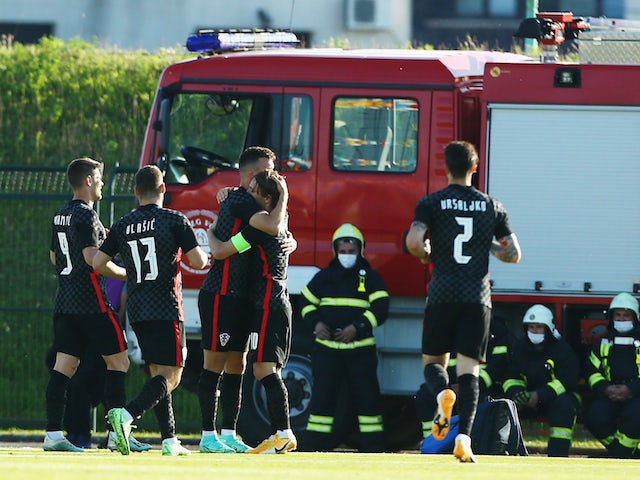 © Reuters
© Reuters
Danijel Subasic, Ivan Strinic, Mario Mandzukic and Ivan Rakitic have all retired since Croatia's last major tournament, and it is now down to the likes of Duje Caleta-Car, Domagoj Bradaric and Josko Gvardiol - as well as key man Luka Modric - to guide their nation to glory.
Here, Sports Mole looks at whether Zlatko Dalic's side have a realistic chance of going all the way in the pan-European competition.
GROUP
Group D is not necessarily the toughest for Croatia, and it is one they will be confident of advancing from in one of the two automatic qualification spots, but facing two of the tournament hosts does complicate things slightly.
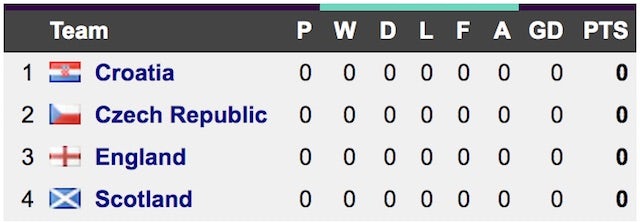
There is no doubt that the opening game with England at Wembley will be the toughest for Dalic's charges, with a defeat in that one likely putting the pressure on heading into games with the Czech Republic and Scotland in Glasgow.
However, Czech Republic are ranked 40th in the world and Scotland are down in 44th, so Croatia - 14th in the latest rankings - really should be aiming for at least six points from their three games.
Four of the best third-placed teams also advance, so only by finishing below each of England, Czech Republic and Scotland will Croatia definitely be eliminated at the first stage.
FIXTURES
June 13: England vs. Croatia (2pm, Wembley, London)
June 18: Croatia vs. Czech Republic (5pm, Hampden Park, Glasgow)
June 22: Croatia vs. Scotland (8pm, Hampden Park, Glasgow)
HOW THEY QUALIFIED
Croatia did not have the best of UEFA Nations League campaigns in 2018 nor 2020, and they hardly flew through qualifying for Euro 2020 with flying colours.
The Vatreni were strong favourites to finish ahead of Wales, Slovakia, Hungary and Azerbaijan, though they did not secure top spot until the final round of fixtures.
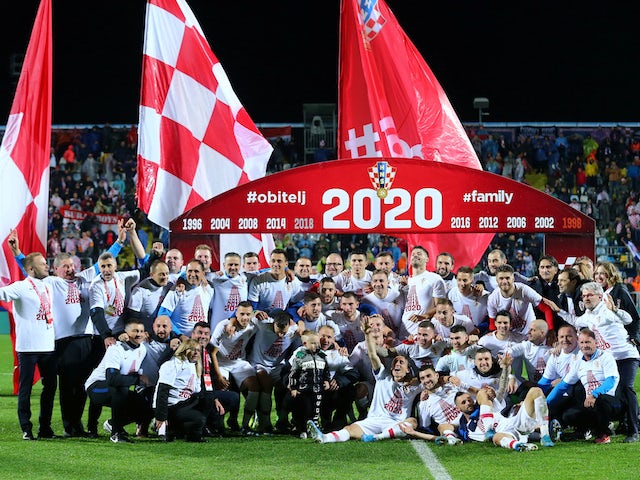 © Reuters
© Reuters
Three wins in their opening four Group E matches ensured Dalic's side got off to a positive start, the only wobble in that opening batch of games being a 2-1 loss in Budapest.
Croatia were then held by minnows Azerbaijan and Wales in successive away games, but home wins over Hungary and Slovakia either side saw them finish in first place, three points ahead of Wales and four in front of Hungary.
Even in that last game against Slovakia they were given a scare, trailing to a Robert Bozenik goal before Nikola Vlasic and Bruno Petkovic scored quickfire goals en route to a 3-1 win sealed by a late Ivan Perisic strike.
RECENT FORM
Croatia have played 14 times in the 19 months since qualifying for Euro 2020, winning just five of those, drawing two and losing seven.
That is hardly a record that will send shivers down the spines of other nations this summer, particularly having drawn with Armenia and lost to Belgium in their two pre-Euros friendlies.
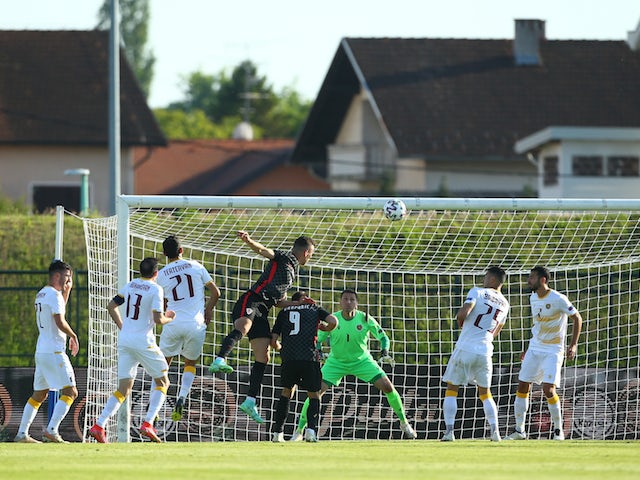 © Reuters
© Reuters
Perisic headed in a first-half opener against Armenia, only for Wbeymar Angulo to equalise late on for a country ranked 90th in the world.
In the friendly with Belgium last time out, Romelu Lukaku's 38th-minute strike proved the difference in Brussels, leaving Dalic with plenty to think about.
Croatia have won their last two competitive games, though, seeing off Cyprus 1-0 and Malta 3-0 in March's World Cup qualifiers after beginning their campaign with a shock 1-0 loss in Slovenia.
SQUAD
 © Reuters
© Reuters
Goalkeepers: Dominik Livakovic (Dinamo Zagreb), Lovre Kalinic (Hajduk Split), Simon Sluga (Luton)
Defenders: Sime Vrsaljko (Atletico de Madrid), Borna Barisic (Rangers), Duje Caleta-Car (Marseille), Dejan Lovren (Zenit), Josip Juranovic (Legia Warszawa), Domagoj Vida (Besiktas), Josko Gvardiol (Leipzig), Domagoj Bradaric (LOSC Lille), Mile Skoric (Osijek)
Midfielders: Mateo Kovacic (Chelsea), Luka Modric (Real Madrid), Marcelo Brozovic (Inter Milan), Milan Badelj (Genoa), Nikola Vlasic (CSKA Moskva), Mario Pasalic (Atalanta), Ivan Perisic (Inter Milan), Josip Brekalo (Wolfsburg), Mislav Orsic (Dinamo Zagreb), Luka Ivanusec (Dinamo Zagreb)
Forwards: Ante Rebic (AC Milan), Bruno Petkovic (Dinamo Zagreb), Ante Budimir (Osasuna), Andrej Kramaric (Hoffenheim)
STAR PLAYER - LUKA MODRIC
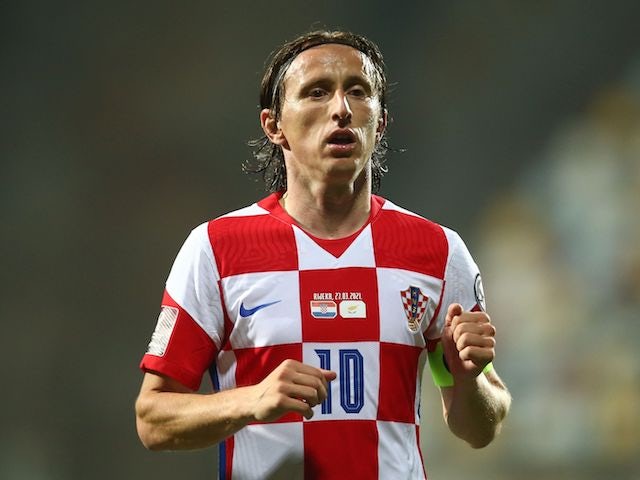 © Reuters
© Reuters
Rakitic and Mandzukic may no longer be around, but Croatia still have some hugely talented players in their 26-man squad, not least Real Madrid veteran Modric.
Arguably his country's greatest ever player, Modric played a key part in Croatia's best-ever tournament finish three years ago and is still playing at a similar level.
After featuring regularly for Madrid in 2020-21, the 35-year-old was last month awarded a new 12-month contact that will take him through to a decade's service at the Bernabeu.
Perisic and Ante Rebic also have big parts to play this summer, while Mateo Kovacic heads into the tournament on the back of a good campaign with European champions Chelsea, but Modric is still the glue that holds this side together.
MANAGER - ZLATKO DALIC
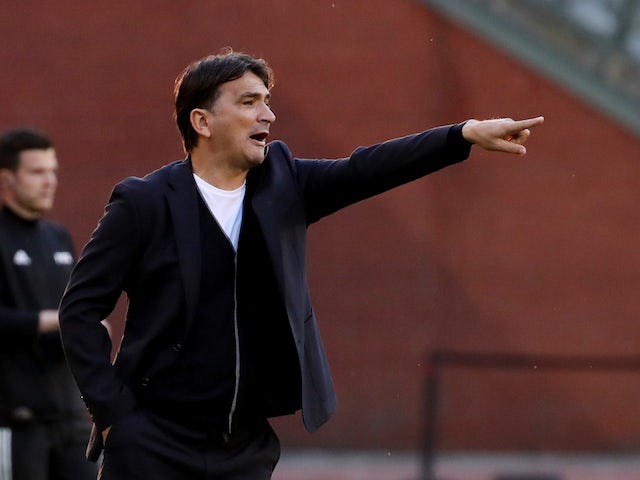 © Reuters
© Reuters
Dalic has been in charge of Croatia since October 2017, taking over at a tough time following a series of poor results under Ante Cacic.
The former Hajduk Split midfielder hardly boasted the best of coaching CVs, but he more than earned the new contract awarded to him after the 2018 World Cup.
Another new deal was given to Dalic after qualifying for Euro 2020, taking him through until the end of the 2022 World Cup in Qatar, which Croatia are on course to qualify for.
That is despite calls for the 54-year-old to resign on the back of a terrible Nations League campaign last year that saw Croatia lose five of their six games and concede more goals than any other side in the competition.
A similar outcome this summer, then, and Dalic may not get the chance to guide Croatia to another major finals after all.
EUROPEAN CHAMPIONSHIP RECORD
Best finish: Quarter-finals (1996 and 2008)
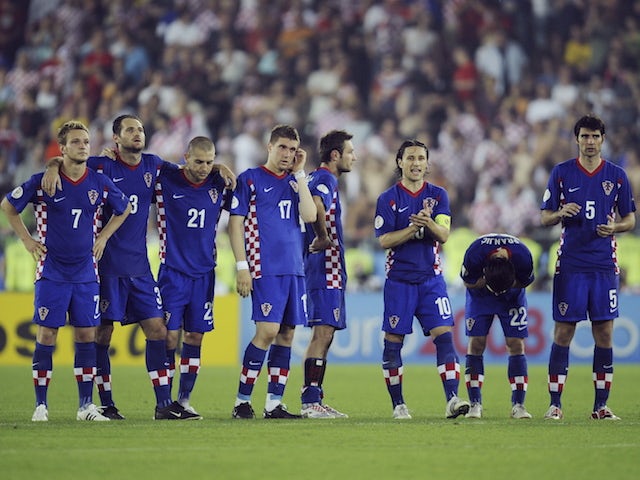 © Reuters
© Reuters
Croatia are competing in the European Championship finals for a sixth time since becoming an independent nation, and they have never previously made it beyond the last eight.
The Vatreni reached the quarter-finals in their first involvement in 1996 and again in 2008, either side of a group-stage exit in 2004.
They once again fell at the first hurdle in 2012, although they were placed in a very tough group alongside eventual finalists Spain and Italy.
Five years ago in France proved a rather mixed tournament as they topped a group that contained Spain, Turkey and Czech Republic before losing in the last 16 to a Portugal side that went on to lift the trophy.
PREDICTION
Croatia have experience of going all the way in a major tournament, but their European Championship record is rather underwhelming and results over the past few years have also been disappointing.
Still, Dalic's men have been placed in a favourable group, albeit with two tournament co-hosts to overcome either side of facing Czech Republic.
We can envisage the Vatreni finishing second to England in Group D and then seeing off whoever finishes second in Group E, which will likely be Sweden if all goes to plan.
Croatia are then on course to face France in a repeat of the 2018 World Cup final, and much like three years ago in Russia we expect them to lose out to the tournament favourites.
VERDICT: Quarter-finals









